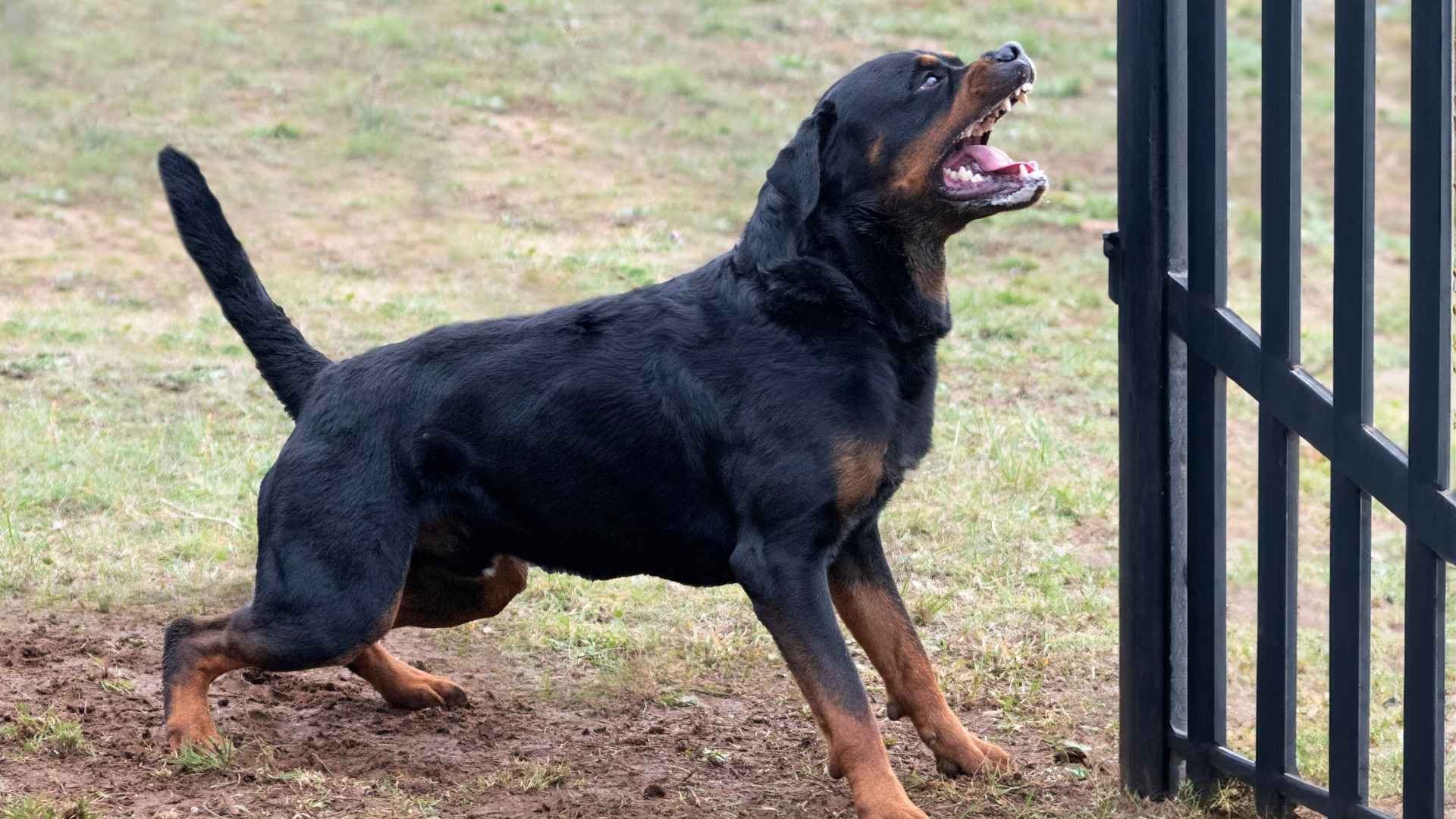When it comes to dog ownership, not every breed is outgoing or quick to form attachments. Some dogs require more time to trust new people and environments, and their cautious nature means they’re not easily overwhelmed by the hustle and bustle of daily life.
If you’re looking for a dog that values a slower, more careful approach to interactions, cautious breeds could be just what you’re after!
These breeds are perfect for owners who appreciate a dog that takes its time to assess situations and people. While they may not be as exuberant as other dogs, their calm, measured personalities make them loyal and deeply bonded companions once they’ve established trust.
If you’re searching for a thoughtful, reserved canine who won’t jump into everything at once, this article will help you discover the 9 most cautious dog breeds that make the perfect fit for your home and lifestyle.
Cautious Dog Breeds
1. Great Pyrenees
The Great Pyrenees is renowned for its protective instincts, making it an excellent guard dog. Originally bred to protect livestock in the Pyrenees Mountains, this breed has a strong sense of duty and will respond to strangers with caution, always vigilant and ready to safeguard its family. Their presence is commanding, but they aren’t quick to act unless they sense a real threat.
At home, the Great Pyrenees is surprisingly calm. They enjoy lounging around, content to simply observe the comings and goings of the household, as per PetMD. Their calm demeanor makes them excellent companions in a home, particularly for those seeking a laid-back dog with a noble, gentle personality.
Their role as a family dog is well-suited for families who appreciate their quiet strength and loyalty. These dogs thrive in households that can provide them with space and a peaceful environment. They’re generally good with children, though their protective nature means they’ll keep a close eye on their loved ones, ready to spring into action if necessary.
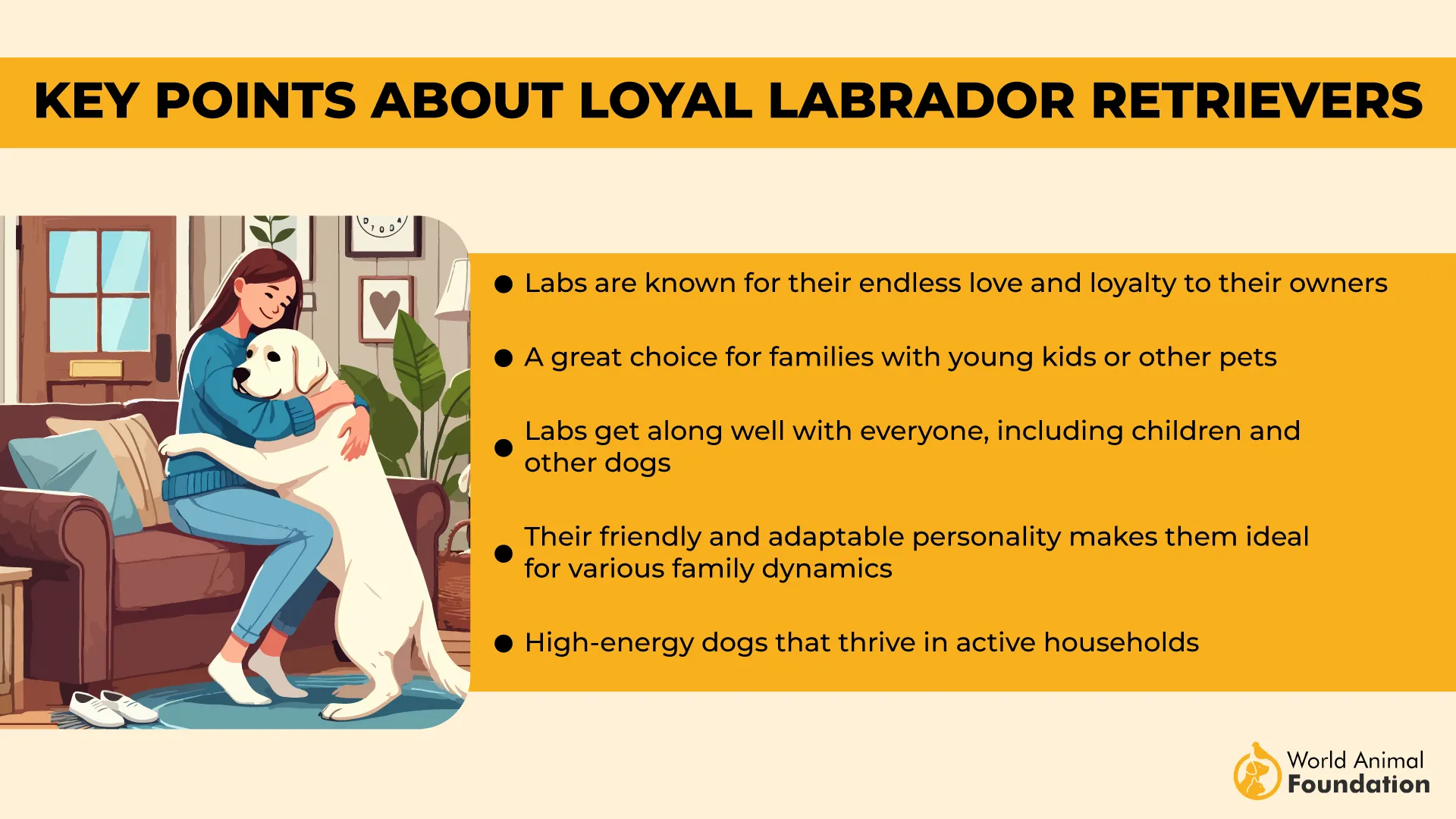
Though they are cautious, Great Pyrenees are also friendly and will gradually warm up to new people. While they may not be the most outgoing, they are definitely not standoffish once trust is established. With the proper training, they make incredibly loyal companions. These dogs are particularly suitable for owners who value a bit of reserved charm and protective loyalty in their pets.
In terms of environment and exercise needs, the Great Pyrenees thrives in large, secure spaces where they can roam freely. Originally bred to guard livestock over vast areas, they require regular exercise to stay healthy and happy. A brisk walk or a chance to explore open spaces helps them burn off energy while remaining the alert guard dogs they are at heart.
2. German Shepherd
The German Shepherd is a breed that’s not only intelligent but also highly protective. Known for their exceptional instincts, these dogs will always keep an eye on their family and territory, making them fantastic guard dogs. They were originally bred to work alongside humans, which has contributed to their well-developed sense of duty and loyalty.
From a young age, these dogs show a keen desire to learn, as per the AKC breed profile. Their eagerness to please and natural intelligence make them standout students in any training class. German Shepherds excel when given a purpose, and their energy is best channeled into structured activities like obedience training or agility courses.
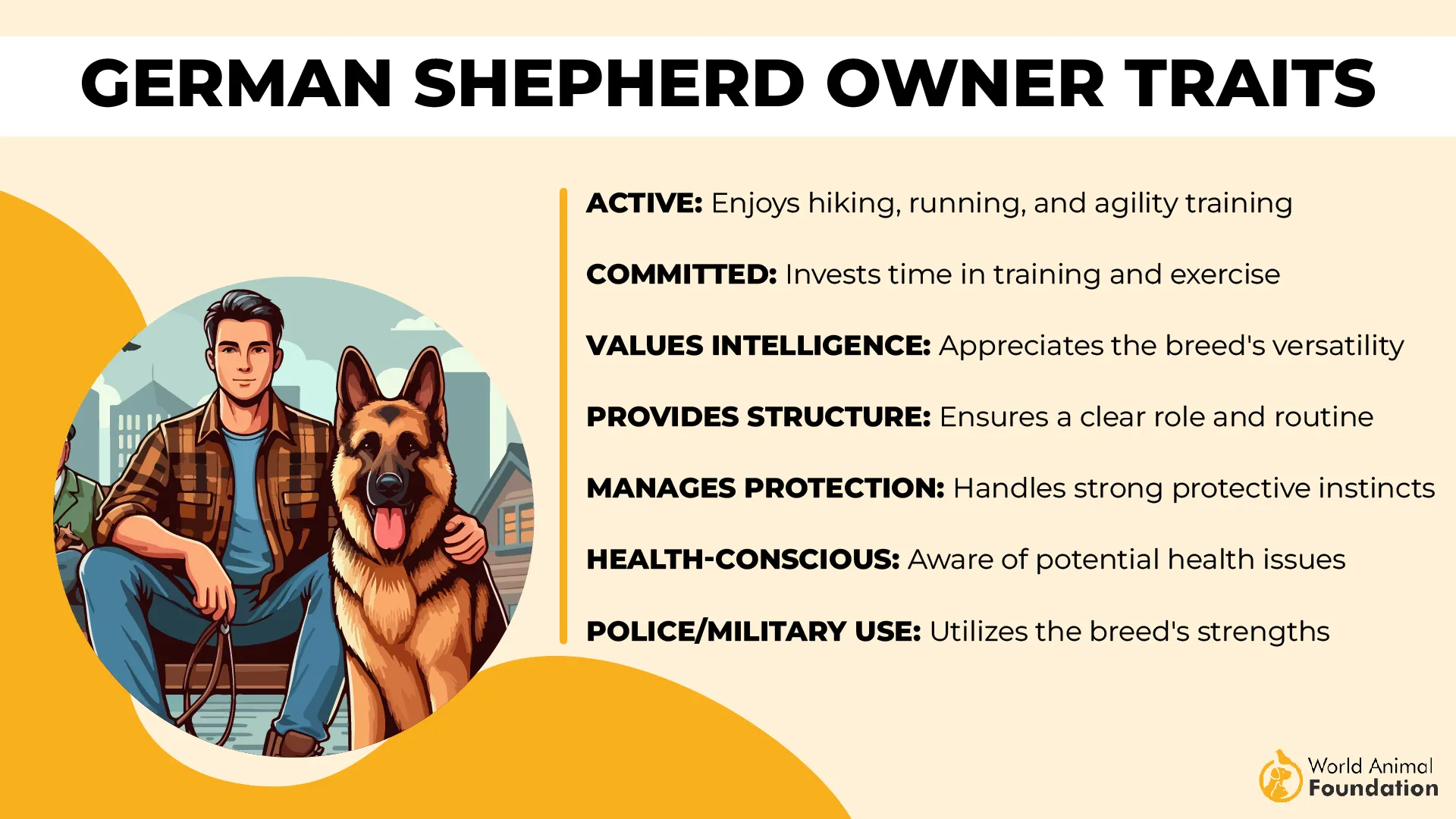
When it comes to family life, these Shepherds are truly a joy. They thrive in environments where they can feel like part of the pack. These affectionate dogs aren’t shy about showing their love for their humans. From sitting at your feet to joining you on adventures, they thrive on close, personal relationships.
In addition to being great family pets, German Shepherds are also wonderful around other animals. They’re naturally protective of their territory, yet they can learn to coexist with other pets if introduced properly. With the right training and socialization from a young age, they’ll easily form bonds with other dogs, cats, and even small animals.
A German Shepherd’s need for physical and mental stimulation is like no other. They’re happiest when they have a job to do, so keeping them engaged is key to preventing boredom. Dog owners will quickly learn that these dogs require daily exercise and a variety of activities.
3. Keeshond
Keeshonds come with a built-in emotional radar, often reacting to your mood before you even say a word. These intelligent dogs thrive in homes where they’re treated as part of the daily rhythm. Whether it’s greeting guests or curling up beside you, they’re always involved. That sensitivity is what makes them such deeply connected companions.
Their cautious streak shows in how they approach unfamiliar settings—they observe before engaging. When properly socialized, they learn to navigate new situations without overreacting. They aren’t shy, just selective with their trust. That makes their eventual affection feel even more rewarding.
They’re not the type to go full guard mode, but you’ll never find them completely off duty. Calm under pressure, they rarely escalate situations unnecessarily. Their breed has among the lowest rates of dog attacks thanks to their stable nature. Think level-headed watchdog, not overly reactive barker.
Keeshonds are ideal for first-time dog owners who want a low-maintenance yet attentive companion. They adapt well to family schedules and don’t demand intense daily training. All they really need is your time and a bit of stimulation. Their mellow vibe is as real as it gets.
They take their time when meeting someone new, letting the dog decide the pace instead of rushing in. Their composed nature makes them easy to trust, especially once they’ve opened up. They’re warm but not clingy, always maintaining their independent streak. That balance is part of their quiet charm.
4. Basenji
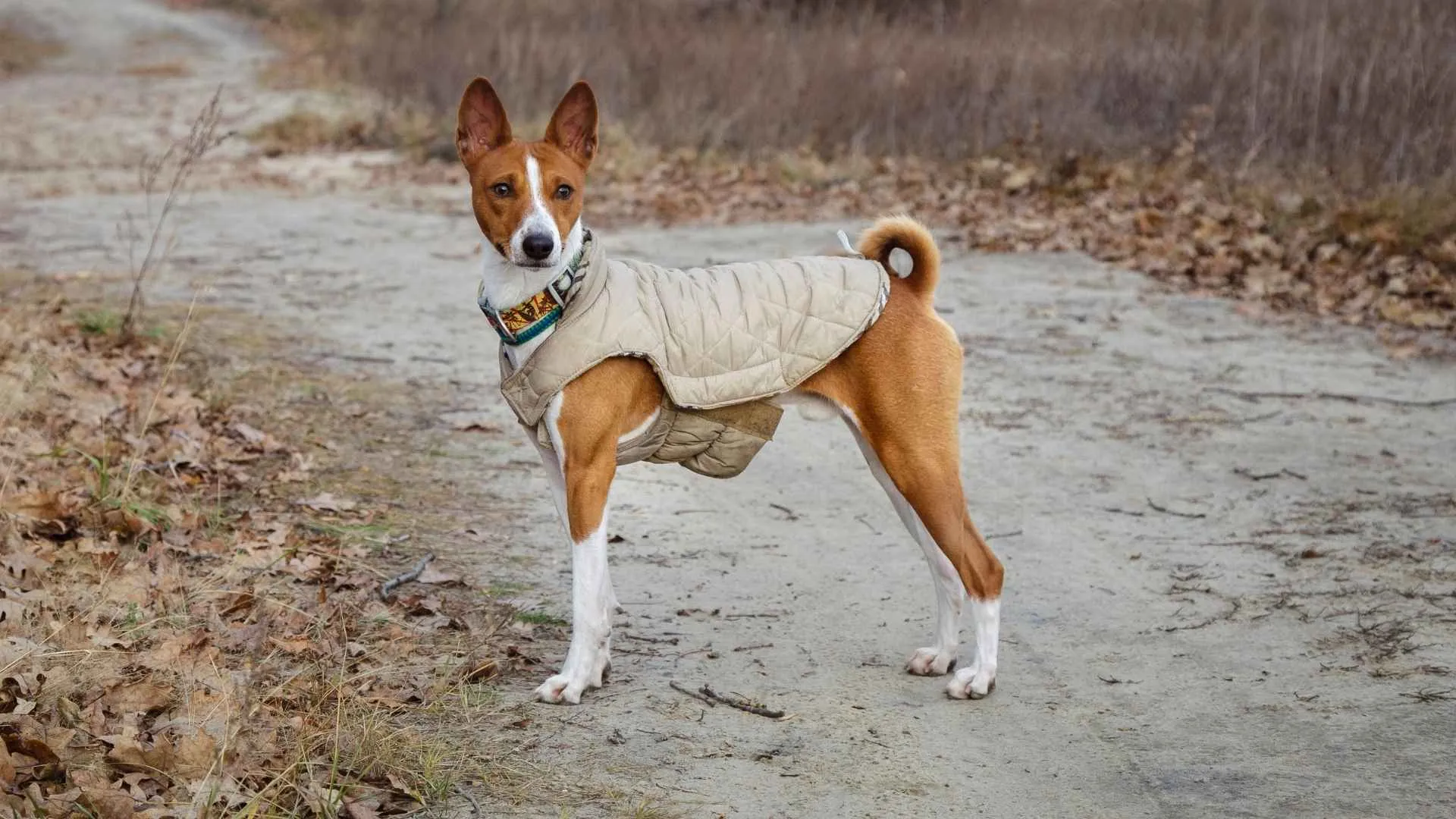
Basenjis come with a personality that’s cooler than most dogs you’ve met—aloof, elegant, and stubborn in the most charming way. Unlike certain breeds that demand constant attention, they enjoy doing their own thing. You might catch them silently watching the world, judging squirrels from a window like a furry philosopher. That quiet confidence is part of their magic.
They’re wired for awareness and don’t miss a beat when something’s off in their environment. Their instincts were sharpened for solo hunting, so they pick up on subtle shifts in energy. This alertness makes them both mysterious and reliable. There’s always a sense that they know something you don’t.
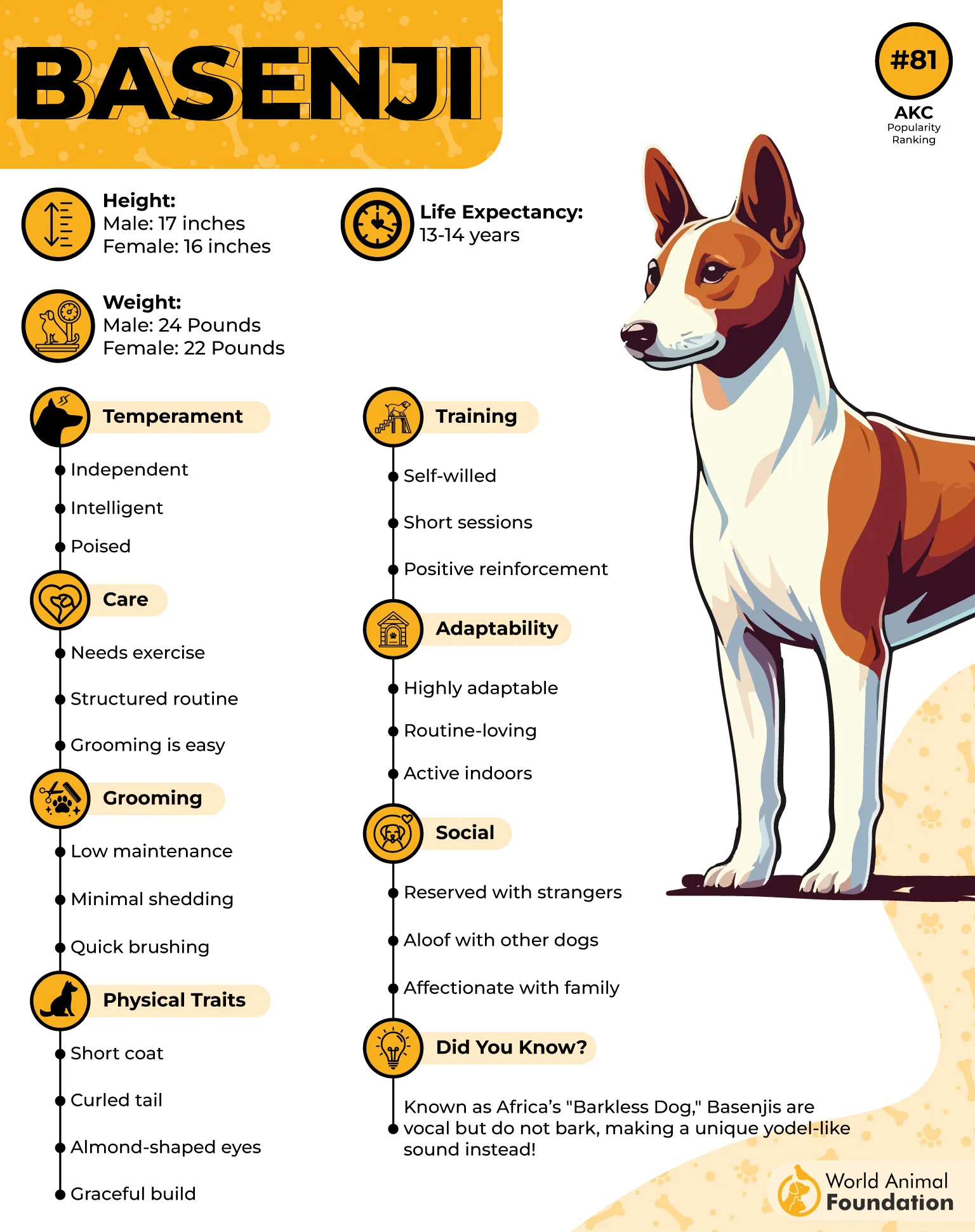
Basenjis tend to be better suited for adults or families with older kids, since they don’t appreciate rough handling. Around small children, their patience can wear thin if things get too chaotic. It’s not that they aren’t affectionate—it’s that they prefer calm over chaos. Respect earns their affection more than anything else.
They may look like little foxes, but with the right structure, they’re surprisingly cooperative. When properly trained, their independence becomes an asset rather than a hurdle. It’s not about dominance—it’s about making the process rewarding for both. Give them reasons, not rules, and they’ll meet you halfway.
Basenjis aren’t a popular breed among prospective owners who want the typical tail-wagging, eager-to-please energy. But for those craving something a little different, they’re a hidden gem. When compared to other breeds, their self-sufficient nature stands out. There’s a quiet thrill in sharing your space with a dog that doesn’t need you every second, but still chooses to stay.
5. Shiba Inu
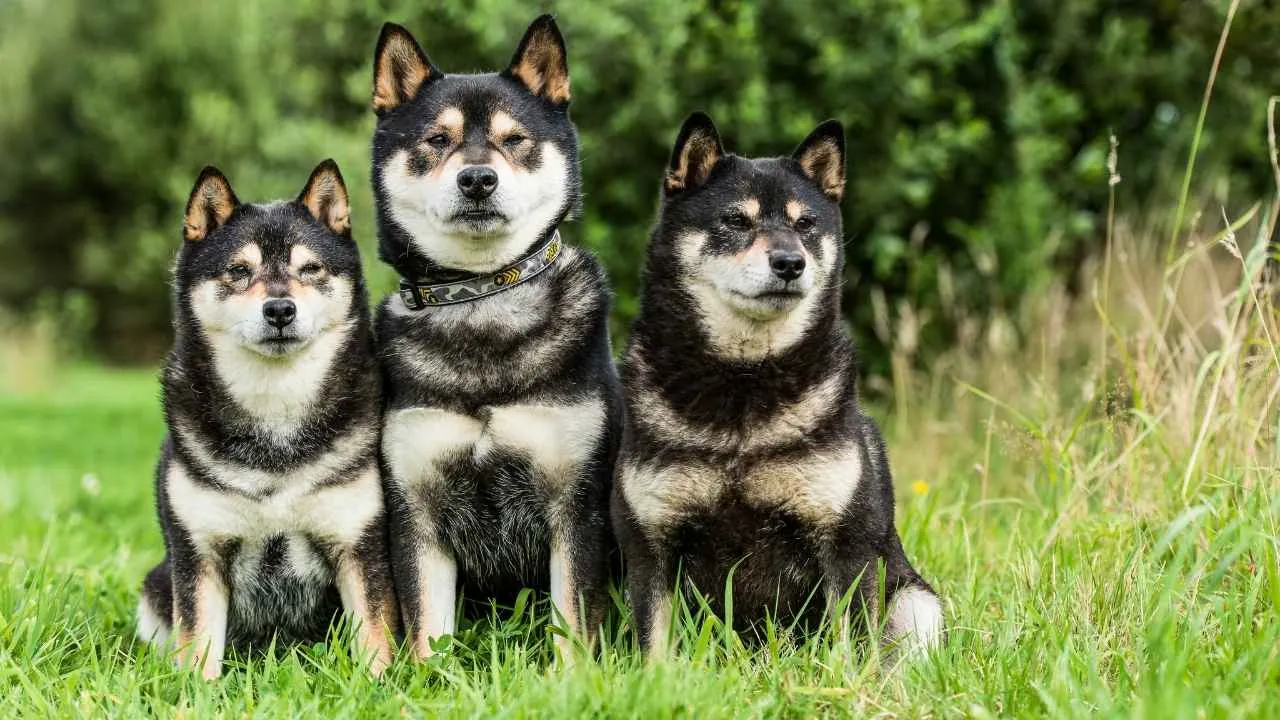
Shibas are sharp, self-aware, and masters of keeping their cool—unless dinner’s late, of course. With proper upbringing, they grow into well-adjusted companions who can confidently handle the noise of everyday life. They don’t crumble under pressure; instead, they adapt with style. Independence runs deep, but it’s wrapped in loyalty that feels earned.
What makes them interesting is how they react to unfamiliar people—always alert, but rarely over-the-top. They’re cautious by default, not aggressive, and tend to assess rather than engage. It’s like they’re silently interviewing newcomers before accepting their presence. This quiet discernment gives them an almost cat-like aura.
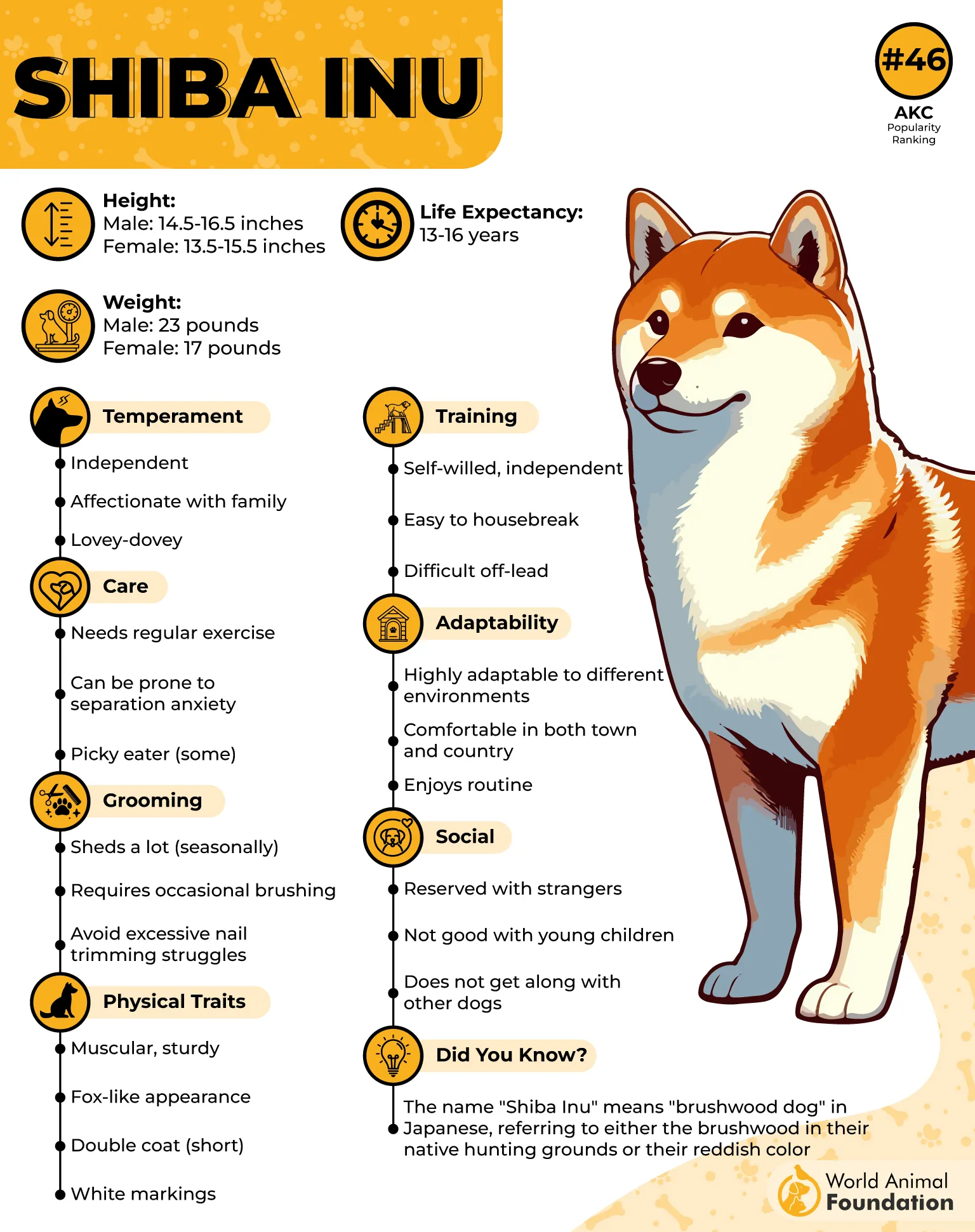
They have an innate sense of boundaries, especially around kids who might pull tails or hug too tightly. Shibas are not aggressive, but they value respect and space. When given room to build trust, their gentleness shines through. It’s a lesson in patience and mutual understanding.
Shibas don’t do well with inexperienced owners who expect instant obedience or blind enthusiasm. These dogs know what they want and won’t pretend otherwise. Training isn’t about dominance—it’s about building respect through consistent communication. A bit of wit doesn’t hurt either.
Owning a Shiba isn’t for everyone, but responsible ownership turns them into unforgettable companions. They push you to grow, not just as a dog parent but as a communicator. They won’t chase your approval, but they’ll remember every gesture that earned theirs. That kind of bond? It hits different.
6. Akita
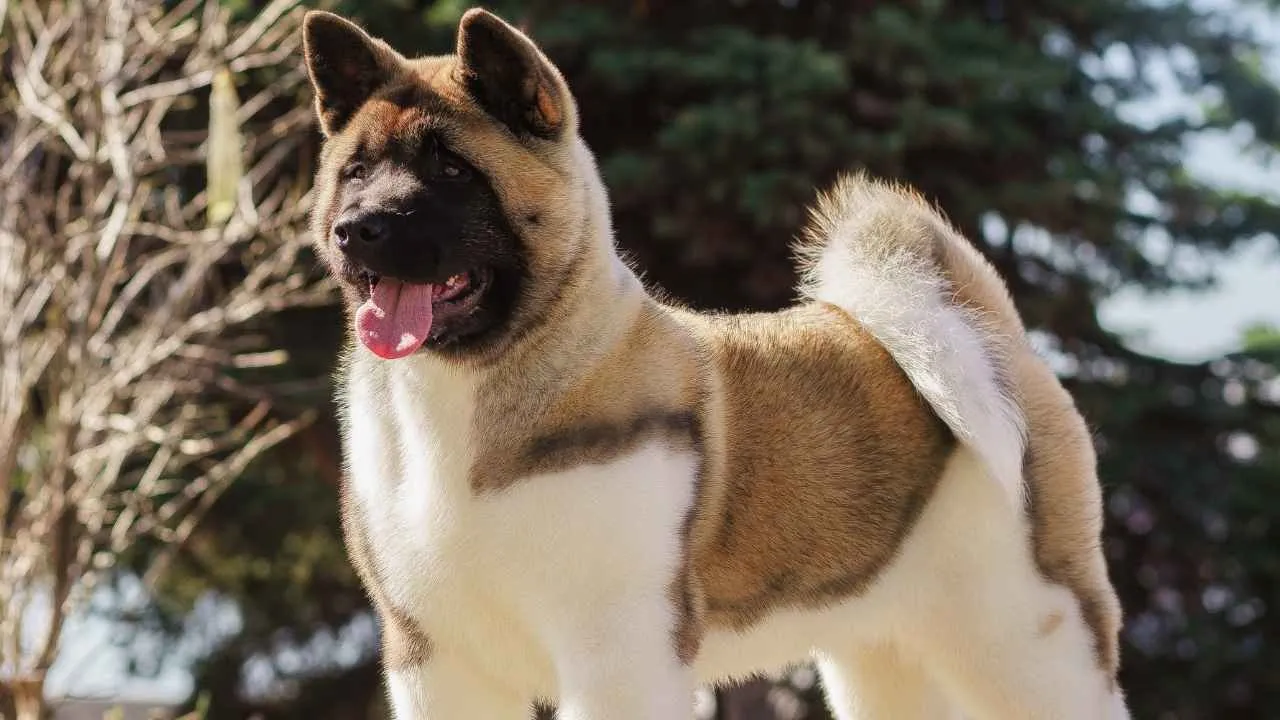
The Akita doesn’t bark at shadows; it watches in silence, waiting to decide whether something’s worth reacting to. That quiet confidence makes them excellent for home security, as their presence alone discourages most troublemakers. You don’t see them scrambling at the window all day. They wait, assess, and act with purpose.
This breed carries a strong prey drive that kicks in the moment they spot movement that doesn’t belong. Squirrels, birds, even wind-blown leaves might activate their inner hunter. It’s not about aggression—it’s instinct paired with power. Secure fencing isn’t optional; it’s a must.
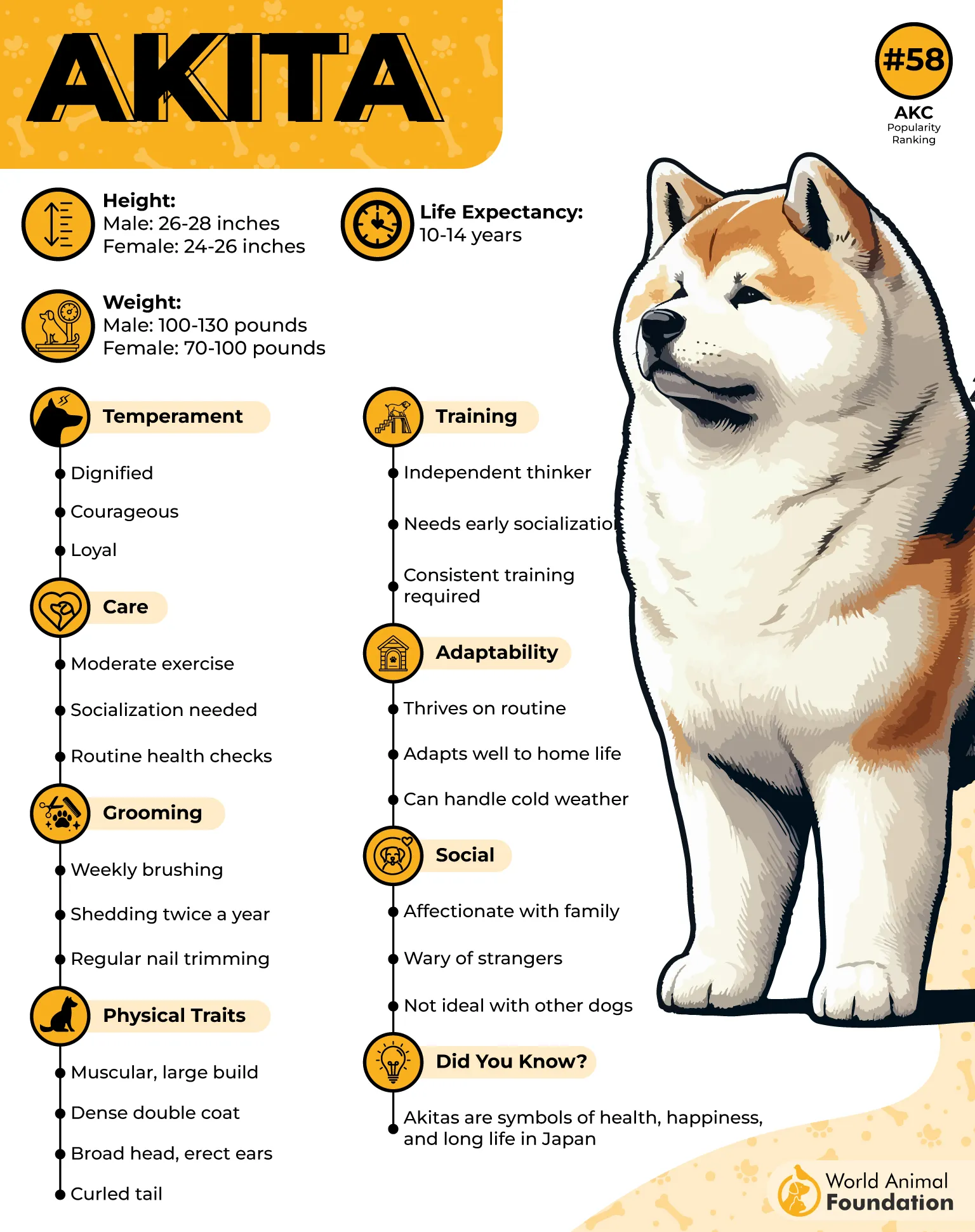
Akitas are deeply loyal, but highly territorial, especially when it comes to their family and space, as mentioned in Hills Pet. They don’t need reminders about who lives where—they just know. Strangers aren’t welcomed with open paws, but with quiet vigilance. That protective instinct never fully turns off.
Despite their strong-willed nature, Akitas can be a good choice for those who value calm intensity over constant enthusiasm. They aren’t for people who want a shadow that follows them everywhere. Instead, they bond deeply but with restraint. It’s respect, not clinginess, that defines their loyalty.
What truly sets them apart is their dignity. They don’t seek approval for every move, they just move with intention. For owners who understand subtlety in dogs, Akitas offer a relationship built on trust, not tricks. Once that bond forms, it’s unshakeable.
7. Chow Chow
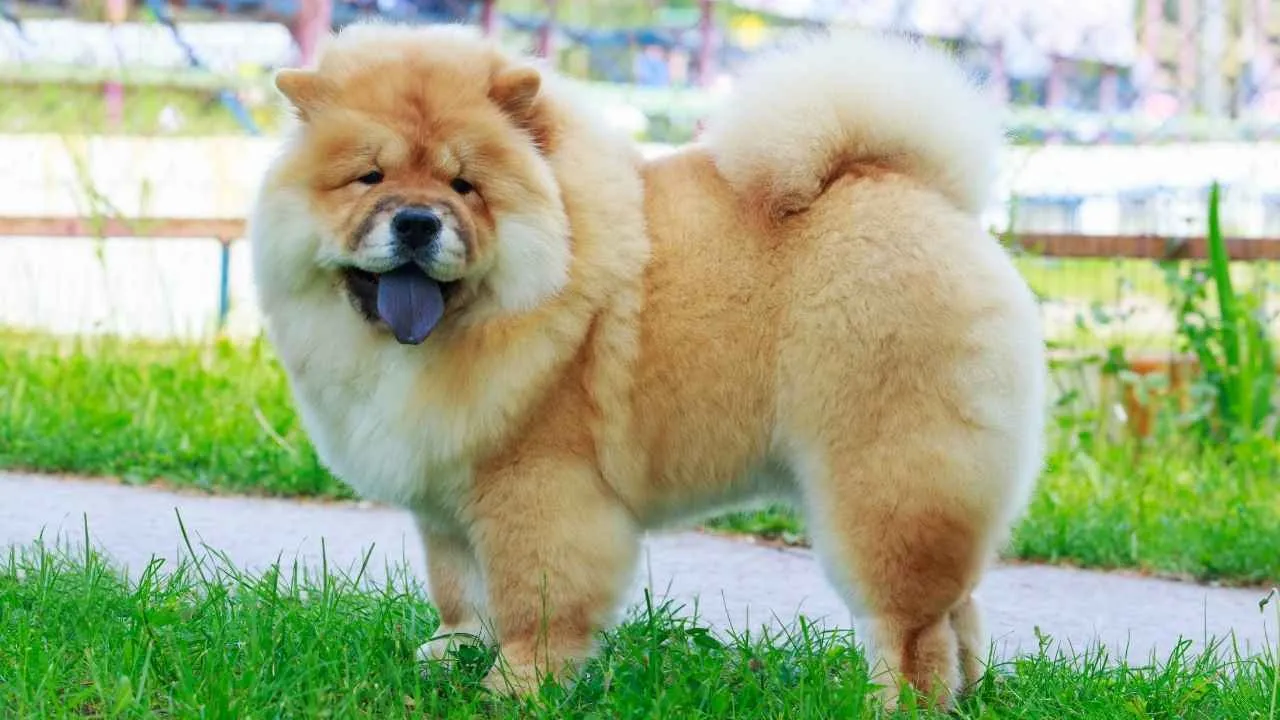
Chow Chows don’t rush into affection—they measure it out like royalty greeting a guest. That fearless nature isn’t just for show; they’re self-assured and won’t bend easily to strangers’ energy. Confidence is stitched into every step they take. They hold their ground, not out of defiance but quiet pride.
Their high prey instinct means the neighborhood squirrel squad better keep their distance. With eyes locked and body still, they’ll stalk like it’s their full-time job. That ancient lineage of hunters still lingers. And while they may look like fluffy lions, their chase game is all precision.
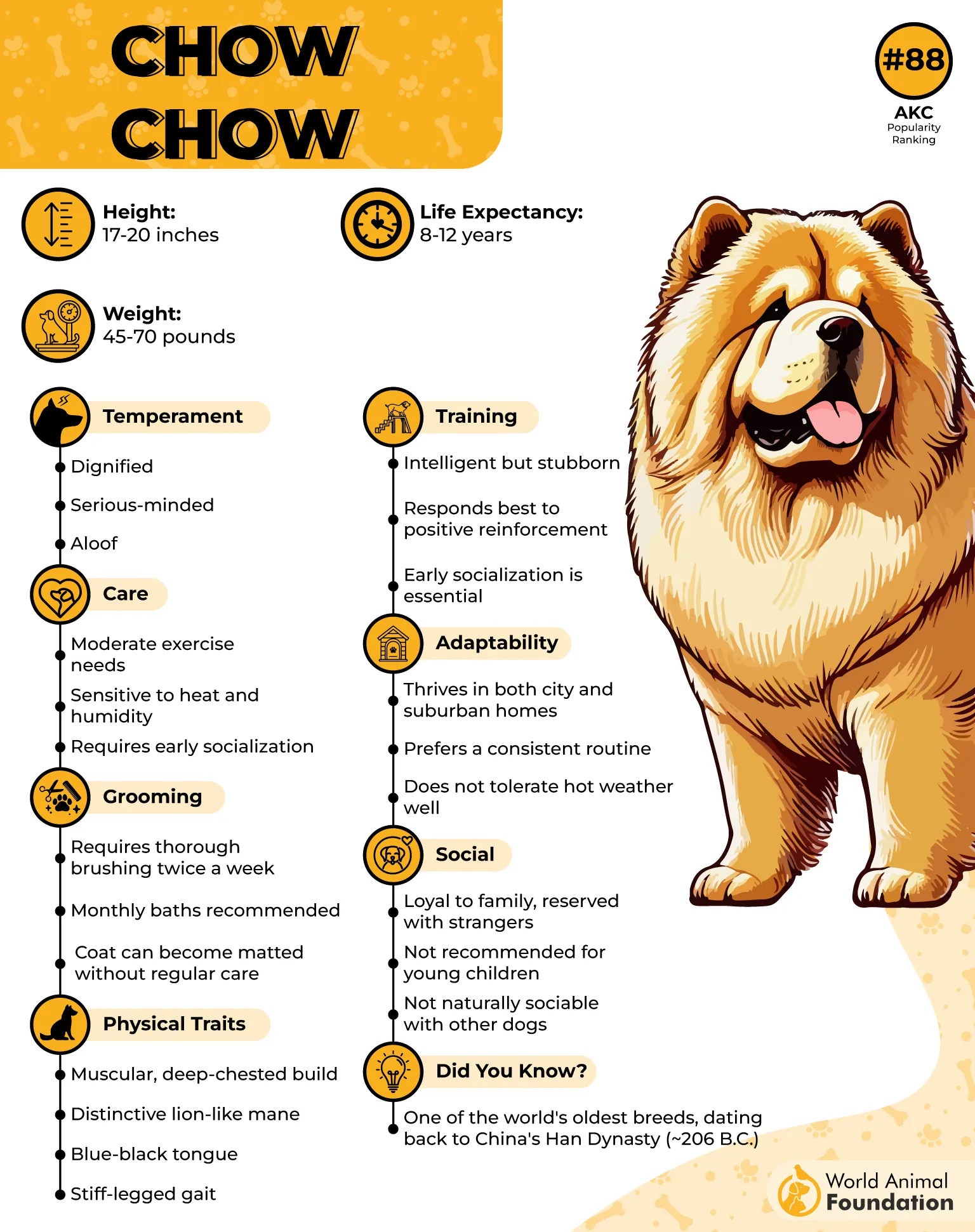
Early socialization is a non-negotiable chapter in Chow’s life story. Without it, they may treat unfamiliar faces like distant planets—visible but unreachable. Introducing them to the world young brings balance to their natural aloofness. It softens the sharp edges without dulling their spark.
These dogs respond best when consistent training is part of the daily routine, not an occasional event. Commands don’t register just because you say them louder. With Chow Chows, it’s all about earning respect before expecting results. They’ll follow when they trust your leadership.
This breed has its own tempo and rhythm—don’t expect over-the-top displays of affection. Their loyalty runs deep, but they express it in dignified ways. Chow Chows connect through calm presence, not clingy behaviors. Once they choose their people, it’s for life, quietly but completely.
8. Bullmastiff
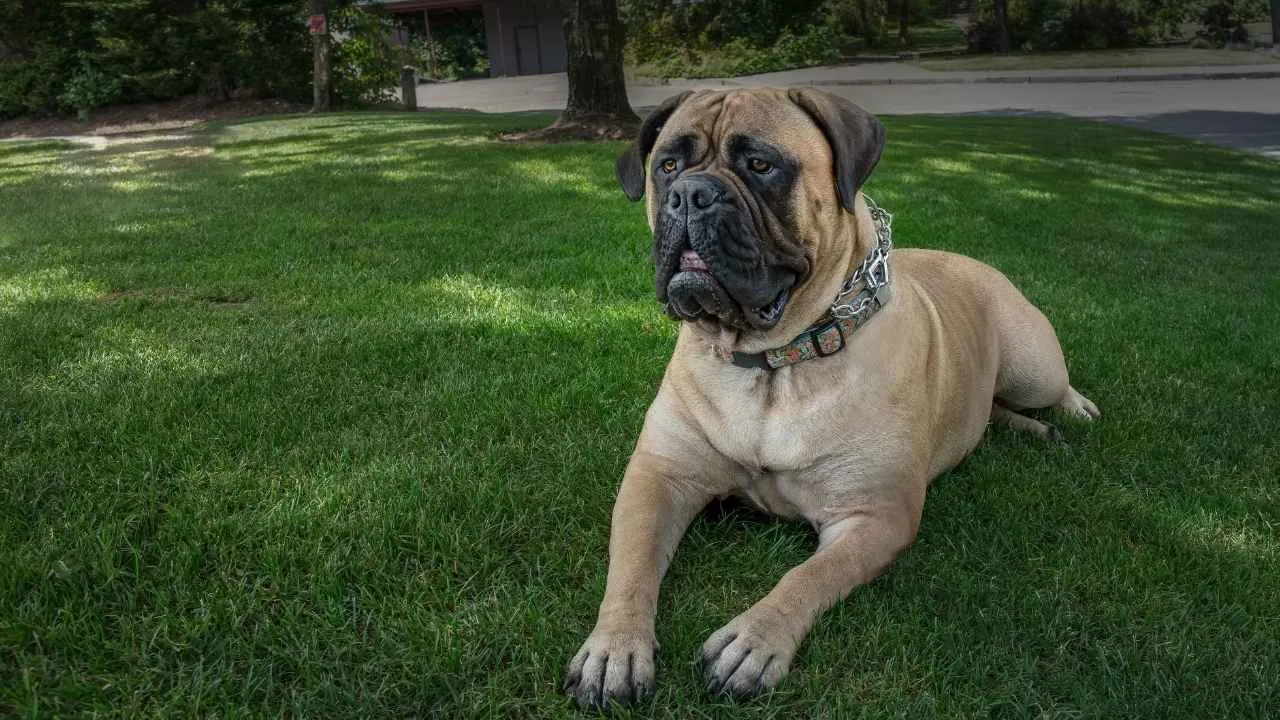
Bullmastiffs don’t just stand guard—they own their space with a quiet intensity that doesn’t need barking to get the point across. That strong sense of territorial instincts kicks in the moment a stranger crosses a boundary. But they’re not reckless. They assess before reacting.
They might look like gentle giants during nap time, but these are undeniably powerful dogs with muscle packed under that velvety coat. You won’t see them sprinting around for fun, but when they move, it’s with purpose. Their sheer size can make an entrance feel like a thunderstorm rolling in.
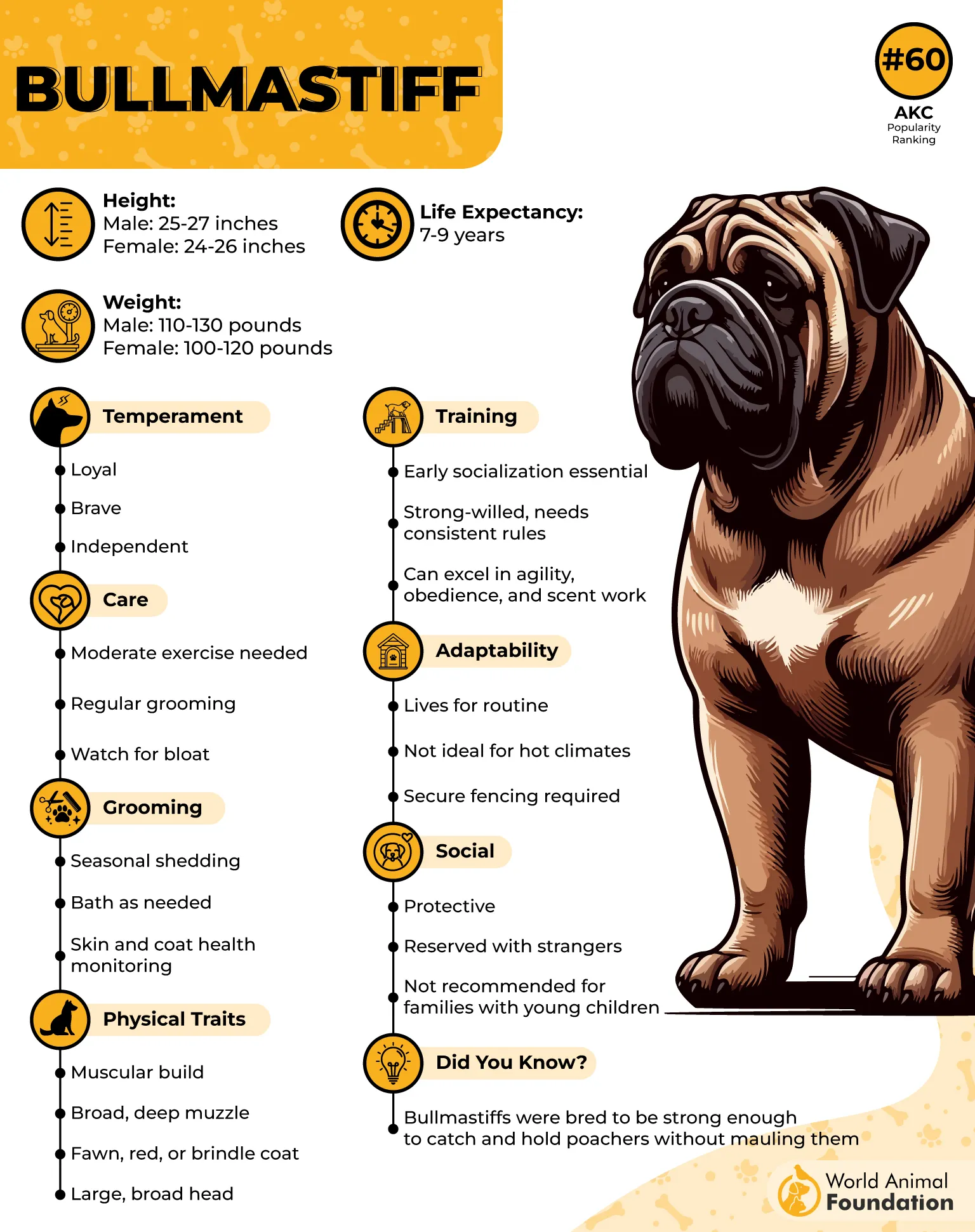
Like many large breeds, Bullmastiffs benefit from early structure and routine to shape their behavior. Training from an early age sets the foundation for calm confidence. It also makes it easier to manage their strength before they start outweighing most humans.
They aren’t looking for fights, but aggressive behavior can bubble up if they’re provoked or feel something’s not right. That’s why proper introductions and social rules matter. Once they understand who’s part of their pack, they become velvet-covered bodyguards with hearts of gold.
At home, they’ll stick close like furry shadows—relaxed, observant, and tuned in. They won’t bark at every falling leaf, but they’ll always have one eye on their humans. It’s not about being clingy—it’s about being committed. Once they’re in, they’re all in.
9. Scottish Deerhound
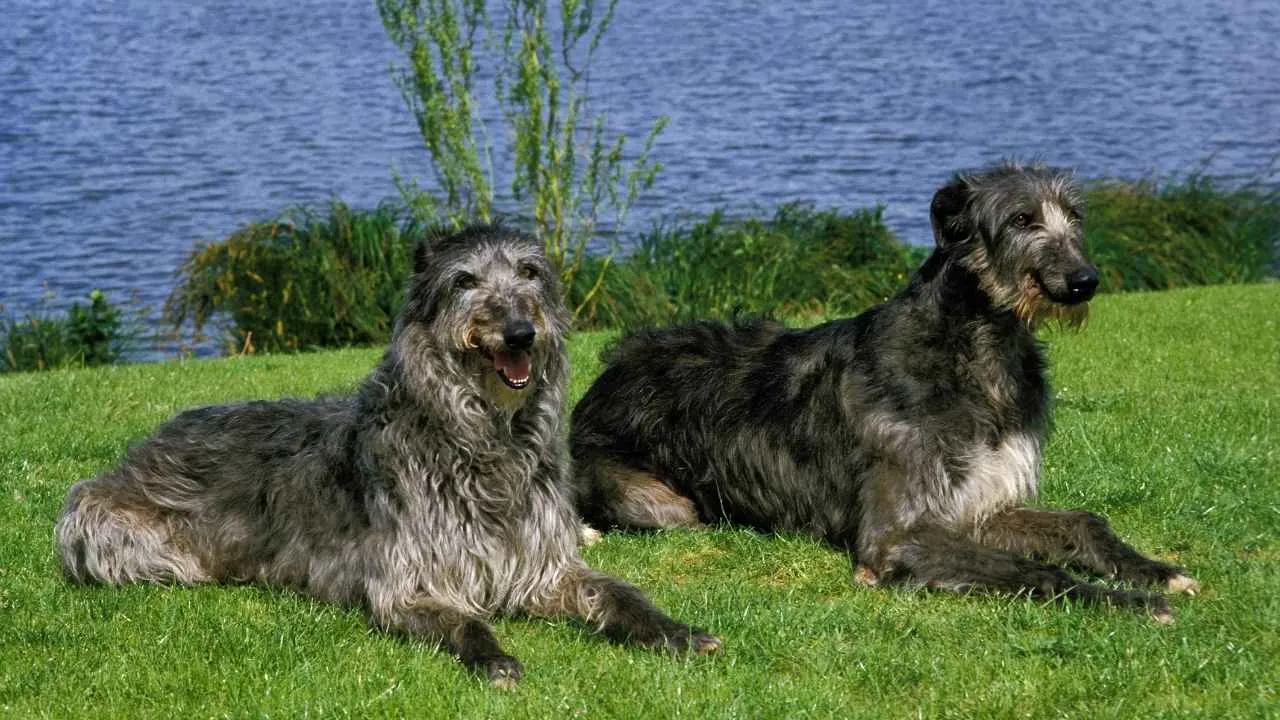
Scottish Deerhounds carry themselves with elegance, but make no mistake—when something catches their eye, their high prey drive switches on instantly. This instinct is strong and deeply rooted. It’s not about disobedience, it’s just the sighthound in them doing what they were built for.
Don’t let the lanky limbs fool you—they’re surprisingly quick to catch on during training. While they may not act eager to please, they do quickly learn commands when motivated. Gentle guidance goes a long way with these mellow, brainy giants.
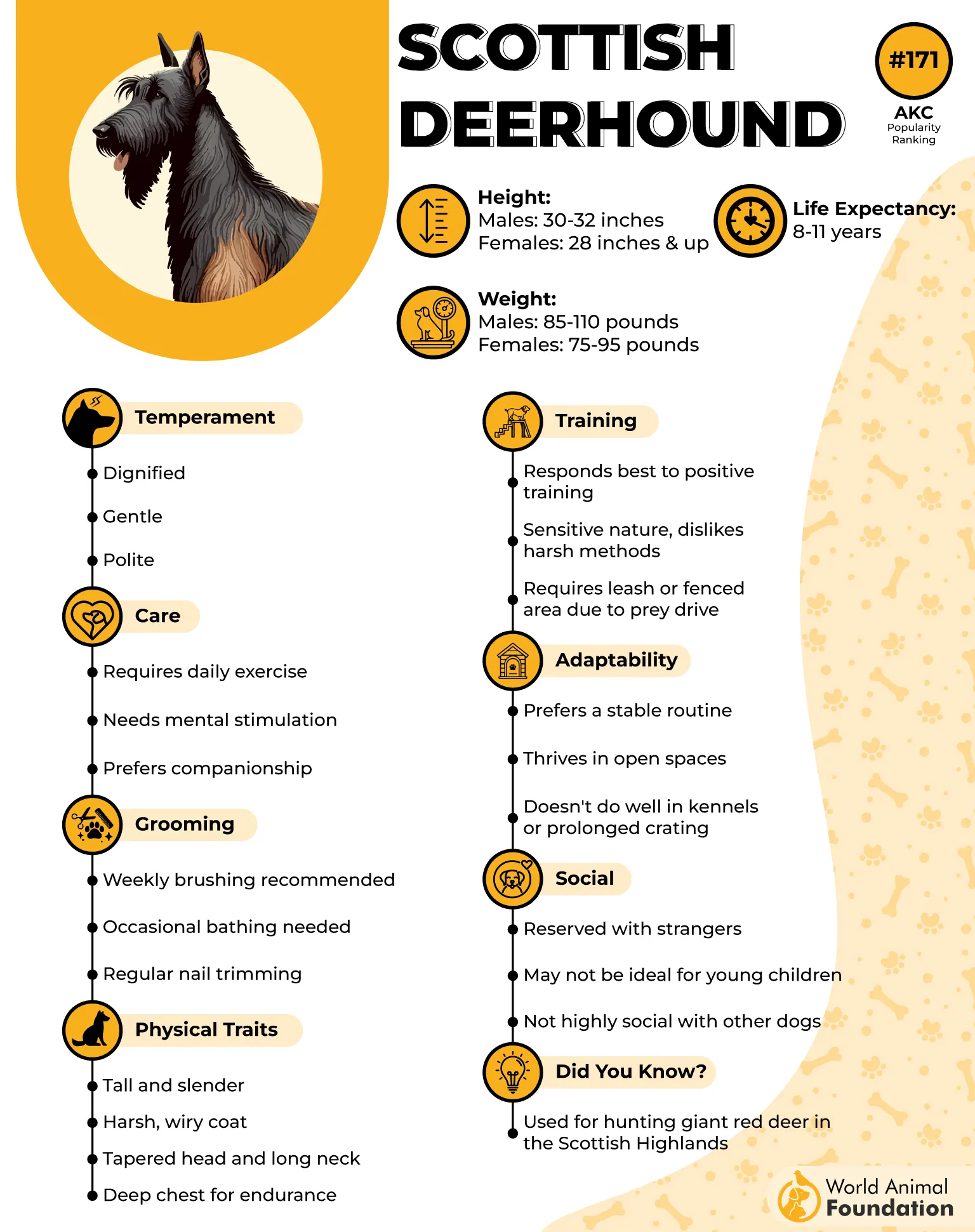
There’s a softness in how they move around the house, especially children, like they know they’re made of glass. Their patience isn’t taught, it’s something they seem to just understand. They’ll lay close by, calm and quiet, like old souls in dog bodies.
While they are not social butterflies, they still make exceptional companions once they’ve bonded. With the right environment, they adapt well to relaxed routines and a slower pace. They don’t demand the spotlight—they just enjoy being near their people.
Scottish Deerhounds won’t fill your home with noise, but they’ll fill it with grace. From long walks under open skies to lazy couch days, their calm presence adds a certain quiet magic. Living with one feels like living with a poem that breathes.
Conclusion
Some of these breeds may carry a reputation, but labeling them as the most dangerous dog breeds oversimplifies their true nature. What matters more is how we raise, train, and interact with them. Their behavior often reflects our own choices.
A number of these large-sized dogs were originally bred for strength, protection, and independence, not mischief or malice. With proper boundaries, they can be calm, loyal family members. Their impressive size shouldn’t be mistaken for a threat.
The truth is, even highly intelligent breeds require consistent training and structure. Intelligence doesn’t cancel out instinct, especially in dogs with a strong protective drive. It simply means they’re quicker to pick up on both good and bad habits.
Organizations like the American Kennel Club offer valuable insights on breed traits, but real understanding comes from spending time with the dog itself. You have to invest time, energy, and patience. There’s no shortcut to responsible ownership.
From bite force statistics to stories of severe injuries, it’s easy to fear what we don’t fully understand. But fear shouldn’t replace facts. These excellent watchdogs can be trusted companions if we approach them with respect, not fear.


